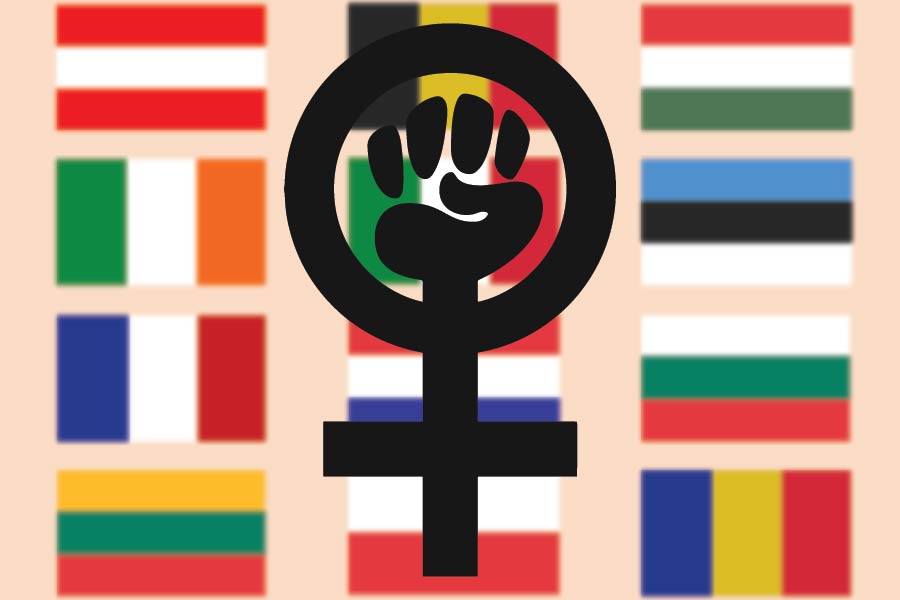
The exclusion of immigrant parents from their children’s lives creates a significant rift
 Growing up, my family friend, an older girl I had always looked up to, imparted upon me the knowledge that we were ABCDs — American-Born Confused Desis.
Growing up, my family friend, an older girl I had always looked up to, imparted upon me the knowledge that we were ABCDs — American-Born Confused Desis.
Desi. Any Indian, Pakistani or Bangladeshi person living abroad can be labeled a Desi, a term with a positive connotation that I’ve identified with my entire life. The Bollywood song “Desi Girl” has played at countless New Year’s Eve parties with the same Indian family friends I’ve known since I was a baby, and I’ve incessantly ranted about the Desi struggles I face to my other brown friends. “Desi” brings vivid memories of Indian culture melded with an American lifestyle to my mind: celebrating every Indian festival as a child, heavily clad in traditional dresses, only to break off from the adults to go play Super Smash Bros. and watch Nickelodeon shows with my friends. It reminds me of visiting New York City, Chicago, Disney World, Lake Tahoe and Yosemite — yet all of those trips pale in comparison to flying back to India to see my relatives. Nothing beats the thrill of meeting my enormous extended family that greets me with all the Indian food I love and takes me to extravagant, week-long Indian weddings where we dance for days on end.
Let’s visit the phrase “American-Born.” I was born in Fremont, Calif. in 1999, and I lived in Fremont until 2017, when I came to Davis. I could not imagine my life without having lived in the U.S, and my American identity is something that is so deeply rooted within me that it shapes my aspirations, goals, lifestyle and choices. Some people have asked me to identify as either American or Indian, but I’m open-minded enough to hold the cultures and values of more than one place in my heart.
Finally, “Confused.” Why is “Confused” used to describe Desis, a large population of people who seem to have it all together?
When I first told my mom I liked a boy, she didn’t react with pure cheerfulness or just unhappy concern. She was overjoyed that I was taking a big step in my life, but she immediately became wary of what my relatives and Desi friends would think if I started dating. Dating before your 20s faces no stigma in the U.S. but is concerning in India, where everyone believed I was too young for that sort of thing. My mother has been an incredibly supportive figure for me throughout my life, and so has my dad, but growing up Desi meant I had to consider both the values of my American identity and my second life back in India.
I recall the many arguments I had with my mother when I was a feisty teenager in high school and self-expression was my first priority. Every time, she worked hard to guarantee that I was happy, but she would not give up the culture she had grown up with her entire life — and I would never want her to. As I’ve grown older, I’ve started to understand how difficult it is to balance two different sets of values.
The U.S. is relatively progressive, and India is getting there, too. Today, my female cousins live very similarly to me — we all make our own choices in college, such as deciding how to have fun and making decisions about our education. They are valued the same as the men they meet, and they have never been treated in a misogynistic way by anyone in our family. However, stigma is still very prevalent in India, especially toward women. There are some individuals who choose to judge women who date, dress a certain way or make any other choices of which the individual doesn’t approve, and the gossip that ensues essentially defames the reputation of the girl.
I see my mother’s perspective. She does much more for my happiness than many other parents I’ve seen — she wants me to live based on only my own choices, but I also shouldn’t tarnish my reputation in our home country by irritating a handful of conservatives who don’t understand or respect the decisions I make.
This spans many different cultures in the United States — immigrant parents are left out of the narrative of the American feminist movement. They were raised through a different culture and made the huge decision to move to a completely different country, and there is no particular formula outlining the acceptance of one country’s culture over the other. This burden falls upon their children, too, and specifically affects young women, who grow up often restricted by the values of their parents’ cultures and religions and feel liberated by American culture.
But that’s doesn’t mean it’s always justifiable to reject one’s upbringing and scorn the advice of experienced parents. It’s up to us as the first generation to understand both sides of the issue. We have the freedom to make choices, but only through communication with our parents can we express our needs as children with two identities. When parents decide to treat a daughter differently than a son — handing out more chores, keeping her from wearing certain clothes or restricting her choices — she should try her best to speak up and communicate with them while rejecting the initial anger she may feel. Sometimes, significant change can come from one conversation.
It’s time we start celebrating our different backgrounds while recognizing them as one hybridized identity. There’s no need to differentiate and alienate the different cultures we come from. Instead of letting a rift form between us and the previous generation, we should try our best to understand the different perspectives and work to create an environment where we can live within our own control while also respecting our rich histories.
Written by: Akshita Gandra — agandra@ucdavis.edu
Disclaimer: The views and opinions expressed by individual columnists belong to the columnists alone and do not necessarily indicate the views and opinions held by The California Aggie.



